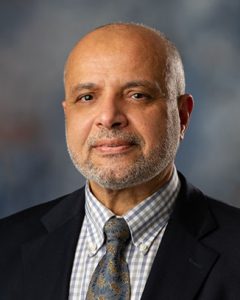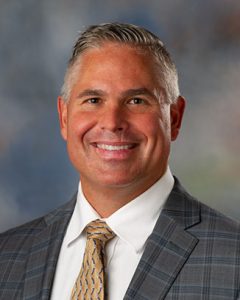
Novel Coronavirus (COVID-19)
Learn about novel coronavirus (COVID-19), our preparedness and updated policies to protect our community, patients, and staff. Learn more here.
Emergency
570-253-8141
Patient Room:
570-253-8609
When prompted enter 3-digit room number
Human Resources
570-253-8995
Wayne Memorial Hospital
601 Park Street
Honesdale, PA 18431
Click the map below for turn by turn directions.
Wayne Memorial Hospital offers an array of cardiology services, including:
Honesdale Cardiology – physician services (see below)
Testing Services: EKG, Holter Monitoring, Stress Testing, Echocardiogram and EE
Heart & Vascular Center Cardiac Catheterization & PCI | Wayne Memorial Hospital (wmh.org)
Chest Pain Center Chest Pain Center – Wayne Memorial Hospital (wmh.org)
Cardiac Rehabilitation Cardiac Rehabilitation | Wayne Memorial Hospital (wmh.org)
Physician Specialty Clinic,
4th Floor – Wayne Memorial Hospital
601 Park Street, Honesdale, PA 18431
PH: 570-253-8601 Fax: 570-253-8348
Honesdale Cardiology offers general and interventional cardiology services to patients over age 17. Our board certified cardiologist performs comprehensive examinations, consultation, diagnosis and treatment of cardiac disease. Cardiac catheterization procedures are performed by board certified interventional cardiologists.
Both diagnostic and therapeutic treatments including Percutaneous Coronary Intervention (PCI) or angioplasty with stenting are conducted at the Heart and Vascular Center at Wayne Memorial Hospital, a state-of-the-art cardiac catheterization lab located at 601 Park Street in Honesdale.

Walid Hassan, MD, MACP, FRCP (UK), FAHA, FACC, FCCP, FSCAI, FSVM
Board Certified Interventional Cardiologist
Medical Director of Heart and Vascular Center

Board Certified General Cardiologist

Lori Jordan_CRNP
Certified Registered Nurse Practitioner
Click on provider names to see biographical information.
Wayne Memorial Hospital is proud to announce the establishment of a Heart & Vascular Center at the hospital in 2016.
Some of the features you can expect are:
Please visit cardiac catheterization under SERVICES on this website to learn more!
Echocardiogram – An Echocardiogram, is also called an echo, a test that uses ultrasound (high frequency sound that cannot be heard by the human ear) to create images of the heart. It is a safe and painless test that helps doctors diagnose many kinds of heart problems. Adult and pediatric echoes are performed in our Cardiology Department.
Routine Stress Test – A routine stress test, EKG electrodes will be attached to your chest. This will allow the physician to monitor your heart rate before, during, and after exercise. A blood pressure cuff will be placed on your arm to monitor your blood pressure. You will be walking on a treadmill, very similar to a treadmill used at a gym. Exercising will begin slowly and the pace may increase. As you exercise, your heart rate and blood pressure will change. This is normal and you are closely monitored throughout the exam.
Myoview and Lexiscan Stress Tests – You will begin this stress test in the Nuclear Medicine Department. This test involves an injection of Myoview, which is a radioactive heart isotope; this will allow the technician to be able to take views of your heart. The pictures will show if there is an inadequate blood supply to the heart, usually caused by narrowed or partially blocked arties. When the coronary arties are blocked or narrowed, the heart muscle may not be getting enough oxygen during exercise. This often results in symptoms of angina (chest pain) and abnormal changes on the EKG. Some people are unable to exercise on a treadmill; in these cases, your doctor may decide to use a pharmacological stress agent to simulate the effect of exercise on your heart. These drugs are injected through an IV. The total test time may vary from three to four hours.
Electrocardiogram (EKG/ECG) – An EKG is done to establish conduction, magnitude and duration of the electrical activity of the heart. This is a five minute procedure.
Besides Wayne Memorial Hospital, EKGs are also available at:
150 Brooklyn St., Carbondale, PA 18407 | (570) 282-1637
Monday – Friday, 7:00 am – 3:30 pm
Holter Monitor – Holter Monitoring is a continuous recording of your heart rhythm, usually 24 hours, while the patient goes about their daily activities. It is used to detect arrhythmias; assess recurrent symptoms, such as dizziness, palpitations, chest pain, or fainting spells; and evaluate the efficiency of anti-arrhythmic treatments, such as medications and pacemakers.
Electroencephalograph (EEG) – An electroencephalograph is indicated for use in the assessment of a patient when a physician suspects neurological disorder, such as a seizure disorder, CVA’s or syncopal episodes.
Wayne Memorial Hospital is proud to announce the establishment of a Heart & Vascular Center at the hospital in 2016.
Some of the features you can expect are:
Please visit cardiac catheterization under SERVICES on this website to learn more!